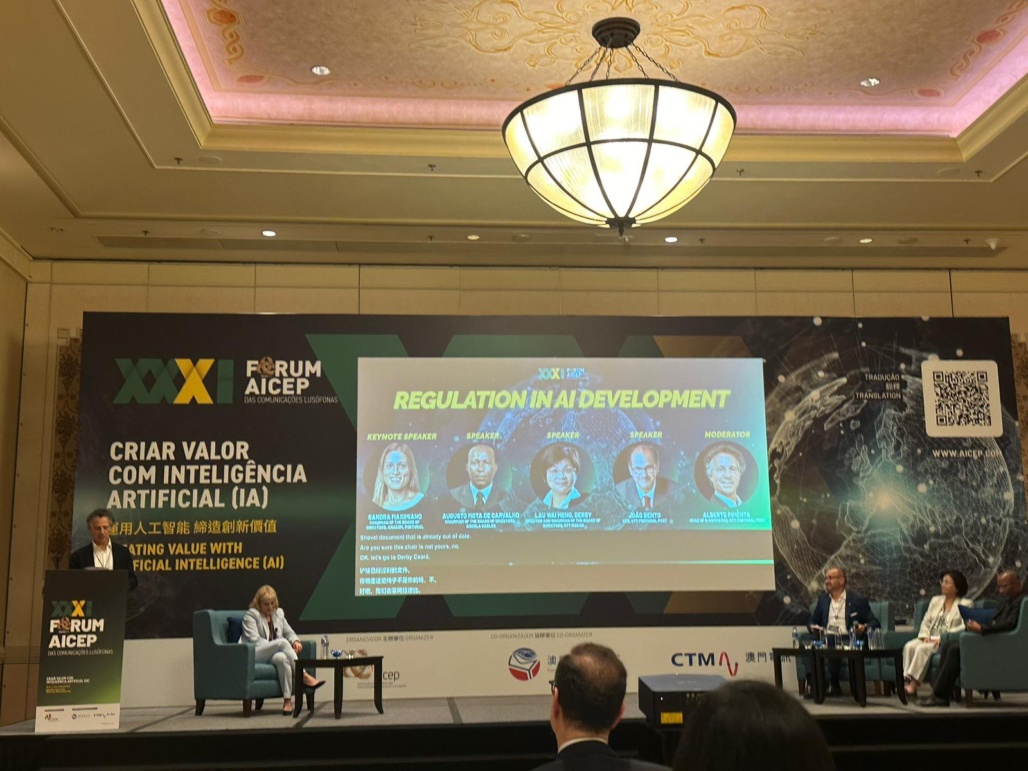The Macau SAR government will take a ‘wait-and-see’ approach concerning Artificial Intelligence regulations, while closely observing regulatory framework experiences in regions such as the European Union that can be used as a reference, Macao Post and Telecommunications Bureau (CTT) Director Debbie Lau said yesterday.
Lau took part as a speaker in a seminar centered on ‘Regulation in AI Development’, included in the XXXI AICEP Forum of Portuguese-Speaking Communications 2024.
“We don’t have legal regulations to oversee AI uses yet. Since its implementation in the city is in the early stages, the government will wait to see what happens and look at regulations such as the EU framework. The extension of AI uses to personal life needs to be closely studied and EU European directives can be a guideline,” Lau pointed out.
The European Union’s AI Act, a regulation aiming to ensure AI is human-centric and trustworthy is expected to come into effect in June.
This regulation, poised to be the world’s first comprehensive law for AI, is designed to maintain a balance between encouraging technological advancement and protecting the rights of European consumers.
While mainland China presented a draft for an Artificial Intelligence Law in March, Macau is yet to advance its local legal framework.
China’s proposed law would enforce curbs on data use, for example, with providers not able to use AI to analyze and evaluate individuals’ behaviors and habits, interests and hobbies, or their economic, health, and credit information.
Speaking during a panel this Friday, Lau pointed out that AI implementation in Macau is still in its “early stages” with local operator CTM already providing some services using AI.

In April of this year, for example, local tourism authorities CTM and Baibu jointly announced the official launch of Macau’s first “AI Macau Smart Tourism Service” integrating Big Data, AI algorithms, and AR technology that supports multilingual translation.
In a recent United Nations University (UNU) AI Conference held in Macau, Secretary for Social Affairs and Culture, Elsie Ao, also stated that Macau aims to attract “talents and experts from scientific and technological areas worldwide to come to the SAR to initiate and develop their businesses,” with advanced tech industries, including AI, being part of Macau’s development priorities for the next five years.
“In terms of tech or even postal services, AI can improve service efficiency and alleviate personnel shortages. Macau and most places in the world are facing qualified staff shortages, and AI can help with it. The use of AI is an unstoppable global trend,” she noted.
However, the CTT Director still advised that Asia and China tend to have a different approach towards technological innovations and respective regulations.
“Things usually go faster [in Asia and China], when there are innovations there is always a risk, but if we think too much about safety nothing will happen. It is like the parents, if they control the children, they will be babies until they are 40. Too much regulation can also harm innovation,” she added.




















